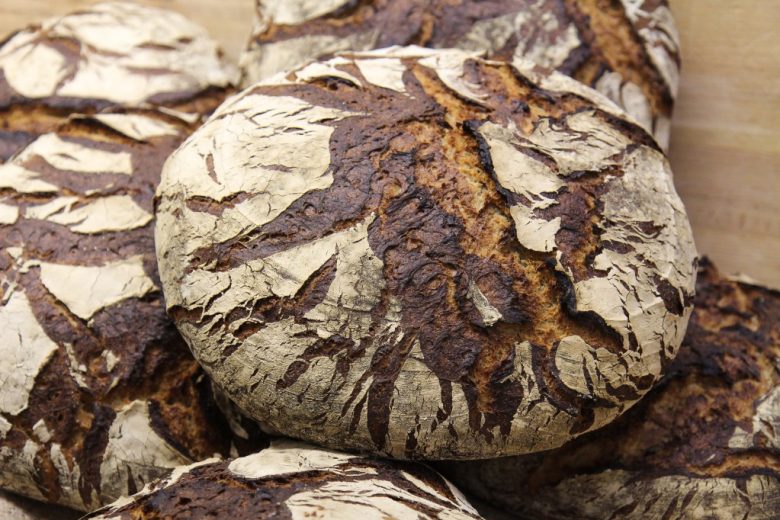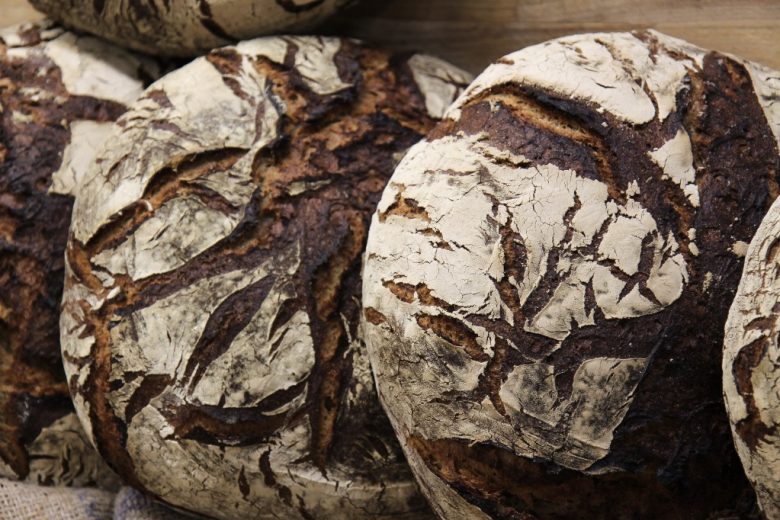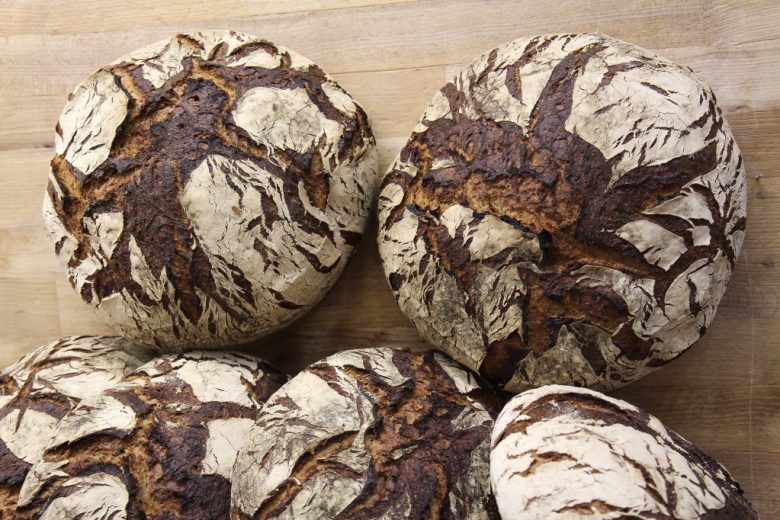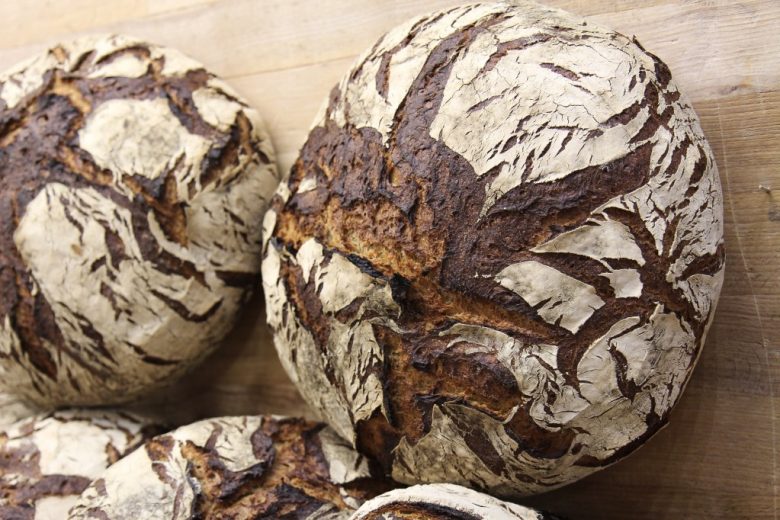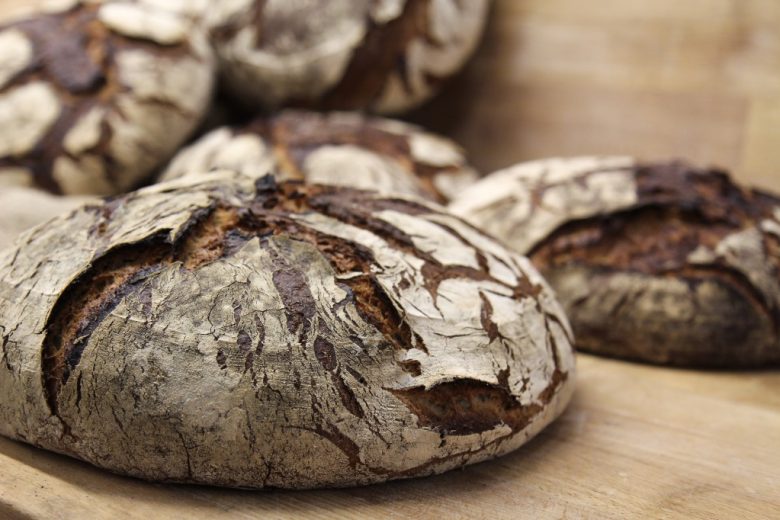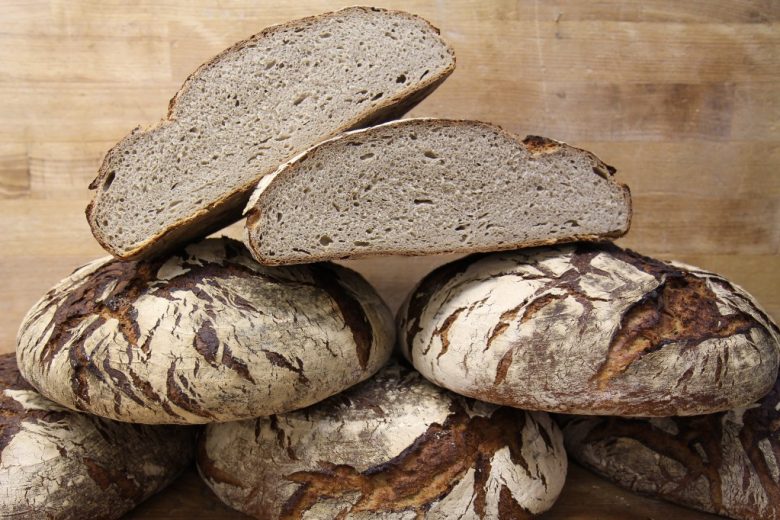Master Crust
Bulk rise for rye and mixed rye loaves
The bulk rise is a must if you want quality rye and mixed rye breads! This is understood as the resting time that occurs directly after kneading. Yet a closer look reveals the term to be misleading, for although the dough “is left to rest” and is not being handled, it is not inactive.
In addition to yeast activity causing an increase in volume during this time, a whole other series of changes take place that positively affect the quality of the dough.
Binding of water
After being mixed, rye dough should rest to improve the uptake of water. In contrast to wheat dough, in which the gluten has to relax after being kneaded, here it’s about giving the pentosans time to bind water.
Cohesive structure
When working with rye dough, it should have a cohesive structure, meaning that the dough remains a single unit over a period of time and does not immediately pull apart. A cohesive structure also is reflected in a dry dough surface that is not too shiny.
Absorption phase
Whereas wheat doughs need to relax after being kneaded in order to avoid overtaxing the gluten structure, rye doughs do not need to rest to protect the dough. The absorption phase should last c. 15 minutes at a dough temperature of 30°C (at lower temperatures, the dough can also rest for 30 minutes). Letting the dough stand any longer can cause the gas that relaxes the dough to overdevelop and make dividing and working with the dough only possible if lots of pressure is used.
Varying degrees of the bulk rise
The time it takes for the dough to rise determines when you can continue working it. Risen dough can be classified as “young,” “mature” and “immature.” Mature, or fully risen dough, displays stability, and the absorption of water has advanced enough so that the surface feels comparatively dry.
The bulk rise affects not only the dough characteristics during further work (dividing, shaping, etc.) but also the quality of the finished bread. Here is a summary of the dough and its characteristics depending on its state after the bulk rise:
“Young” dough
Dough characteristics:
- Moist surface
- Slack and runny
- Not very limber
- Sticky
Bread quality:
- Small volume
- Minimal bloom
- Spotted, dark crust
Overmature
Dough characteristics
- Very dry surface
- Surface has burst open in places
- Slow increase in volume
Bread quality:
- Small volume
- Scabby crust
- Dense and cardboardy crust
- Bland taste
Mature dough
Dough characteristics:
- Dry and fluffy surface
- Good dough stability
Bread quality:
- Large volume
- Nice, delicate crumb
- Aromatic taste
The bulk rise can be influenced by countermeasures. While combining a lot of baker’s yeast, high temperatures, intensive kneading and a stiffer dough speeds up the process of making bread, it is accompanied by a loss of quality in the final product.
Retarding the bulk rise:
- Low temperatures
- Soft (high hydration) dough
- Slow mixing/kneading
- Smaller amount of dough
- Working the dough (stretching/folding)
These measures are important preconditions to achieve high-quality rye and mixed rye breads.
Shorter bulk rise:
- Stiffer dough
- Higher dough temperatures
- Intensive kneading (with larger amounts of wheat)
- Large quantity of yeast
- Larger amounts of dough
Whereas wheat doughs can be folded once or multiple times during the bulk rise, this step is not used in breads that have a large amount of rye. The bulk rise for rye breads should not be extended for too long, as this leads to more negative than positive results.
Recipe
For a dough weight of 2092g / 1 large or 2 small loaves
Pre-dough:
- 150g Ruch flour
- 180g water 10°C
- 2g yeast (dissolve in water)
Mix everything together at once and store in the fridge at 4°C until it’s time to make the dough.
Sourdough:
Stage 1 / Foundation sour:
- 65g rye flour type 960
- 46g water
- 6g starter
DT: 26-27°C RT: 15-24 hours TA: 171
Stage 2 / Full sour:
- 117g mature foundation sour
- 135g rye four type 960
- 175g water
DT: 29-30°C RT: 4 hours TA: 220
Main dough:
- 332g mature pre-dough
- 427g mature sourdough
- 300g Alpine rye flour
- 250g Rye flour type 960
- 150g Ruch flour
- 600g water 35°C
- 25g salt
- 8g yeast
- + bread spices according to preference
Instructions:
- Mix all ingredients for 7 minutes slowly, then cover the bowl and let rest for 15 minutes.
- Form the dough as desired and place seamside-down in a floured proofing basket.
- Once it is 3/4 proofed, tip the dough out of the proofing basket and begin baking at 250°C with steam.
- Release the steam after 3 minutes and continue baking at 250°C for another 10 minutes.
- Turn down the temperature to 200°C and bake until well-browned.
- Baking time for a dough weight of 1000g: 60-65 minutes
- Baking time for a dough weight of 2000g: 70-75 minutes



